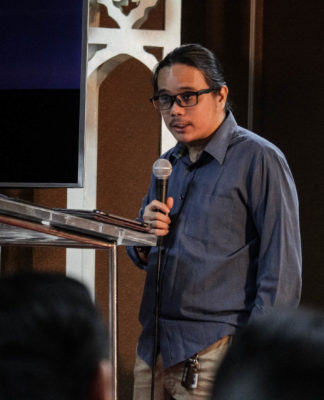THE GENERIC prescription to relieve an ailing nation from its economic malady requires more than just constitutional overhaul.
Yet short-sighted congressmen from the administration ranks, who are pushing for House Resolution (HR) 737 which seeks to allow foreigners to fully own businesses and acquire land in the country by amending the economic provisions enshrined in the 1987 Constitution, do not seem to get the point.
No less than House Speaker Prospero Nograles authored HR 737, tempered by what he described as “frustration” toward the protracted armed conflict in Mindanao which, “despite its natural wealth, fertile soil and favorable climate, remains “trapped in a chicken-and-egg situation” for four decades now. The resolution has already mustered 163 signatures, mostly coming from the administration bloc. Nograles uses intriguing logic to justify it. To wit: “Many people are poor in Mindanao because of the insurgency problem and we have an insurgency problem because there are no investments coming in to help the poor. We have been trapped in this kind of situation for a long time now and there’s nothing we can do about it just because of two particular provisions in the Constitution.”
The good Speaker is referring to Sections 2 and 3 of Article XII, the former stipulating that “exploration, development and utilization of natural resources should be in full control of the State, allowing only co-production, joint venture or production sharing agreements with a maximum of 60 percent equity in domestic or foreign ownership,” and the latter prohibiting foreigners from owning alienable lands of the public domain, allowing only lease for a period not exceeding 25 years, renewable for not more than 25 years and not exceeding an area of 1,000 hectares.
But again, the question of timing – one year before the 2010 presidential elections – arouses public suspicion that the Nograles resolution is but a mere intermission leading to the dreadful climax: extending the term of the administration lawmakers’ patroness in Malacañang.
Defending HR 737 against such insinuations, La Union Rep. Victor Ortega said that constitutional amendments shall only be limited to the scope of the Nograles resolution. But Senate President Juan Ponce Enrile sees beyond Ortega’s pretenses, pointing out that “once the Constituent Assembly (dominated by the president’s stooges) has been called, you cannot control what they will do with the Charter. You cannot limit it.”
Whether it is indeed possible to limit the assembly within the Constitution’s economic parameters is the critical question, given the nature of the Con-Ass, which administration congressmen prefer over an elected Constitutional Convention.
On another note, it is quite interesting to ask why Mindanao is the only geopolitical concern on top of the Speaker’s agenda in sounding off the need to amend the Constitution. How about the other regions, which also carry their own economic crosses? Stated in another manner, the Nograles resolution mirrors the kind of political parochialism that has typified Congress, particularly the House of Representatives, these days. At any rate, the Nograles resolution offers, at best, a myopic and one-sided diagnosis of the economic woes gripping Mindanao.
The insurgency problem is only the tip of the iceberg. That economic abjection pushes the ordinary Mindanao townsfolk (there may be other reasons) to turn into rebels of fortune is a plain insult to them. For many Mindanaoans, their cause is not just about money. In addition, the Nograles resolution, which projects the notion that brigandage has become the cottage industry pump-priming the criminal economy of Mindanao to date, sports a mockery of the credibility and effectiveness of the military’s counter-insurgency and peace-keeping missions in the island.
In any case, who would like to invest in a place where foreigners have become the major export commodity of rebel-cum-kidnap for ransom groups and safety in general has become an afterthought? Who would like to invest in a place with poor infrastructure and weak institutions stemming from bad governance, and policy-making and implementation?
Perhaps the good Speaker should learn a thing or two from US Ambassador Kristie Kenny who singled out corruption as the source of all the negative foreign perception that keeps the country from joining “the dynamic and fast-moving economies of Southeast Asia.” The Philippines, in order to overcome such unfavorable perception, Kenny said, must respect international laws, protect intellectual property rights and work on environmental protection.
Given the circumstances, the most the Nograles resolution will do is to legitimize foreign corporate dummies which have been in Mindanao and other parts of the country ever since.
Charter change, even with the noblest of intentions, can wait until the occupant of Malacañang and her devout political henchmen step down from power.













